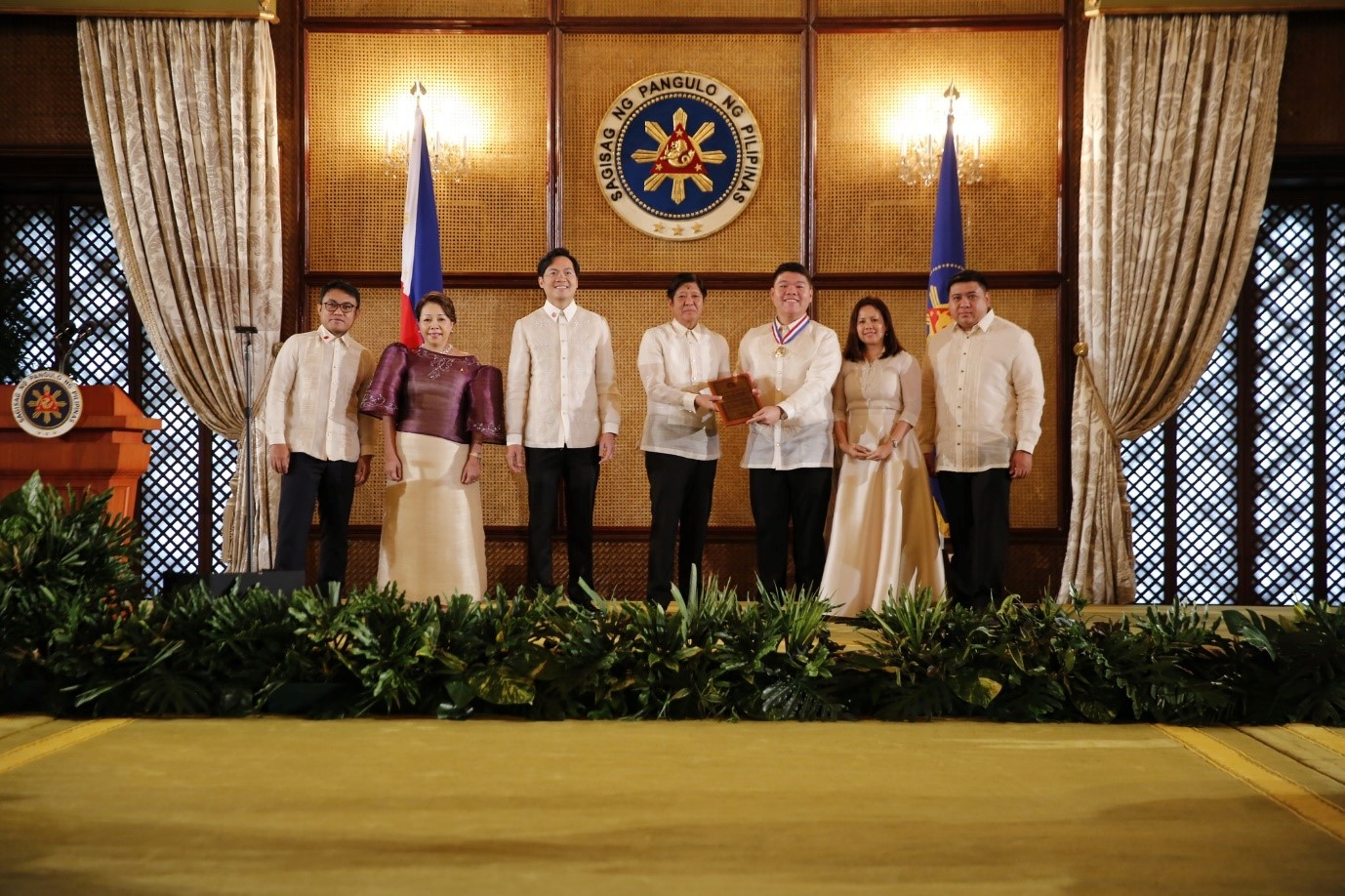
Pres. Ferdinand Marcos Jr. (middle) confers to Dr. Dr. Angel T. Bautista VII (third from right) and Mr. Norman DS. Mendoza (rightmost) the 2023 CSC Pagasa Award (Group Category) of the Civil Service Commission’s Search for Outstanding Government Workers. (Photo courtesy of the Civil Service Commission)
Honey, it’s true
2023 Pagasa Award goes to DOST’s honey-testing nuclear researchers
The labels may say pure honey in the bottle but there is a highly accurate way to check the authenticity of this sweet bee-produced food. In a study that examined local and imported honey from local supermarkets, the research team from the Department of Science and Technology-Philippine Nuclear Research Institute (DOST-PNRI) used a nuclear analytical technique to determine the authenticity of honey.
In particular, the Internal Standard Stable Carbon Isotope Ratio Analysis or ISCIRA, detects honey adulteration by checking the levels of so-called C4 sugars such as cane and corn syrups. This technique, being fool-proof in nature, is tagged as the “international gold standard” in honey authenticity tests.
To be considered authentic, the honey sample should have an ISCIRA index of not lower than -1 ‰.
The updating of the Philippine standard on honey using this nuclear technology shows the government’s serious effort in stepping up food safety in the country.
Moreover, the country’s honey industry is expected to recover and improve from its annual loss of Php 225 million due to fraud and adulterated honey which has been dominating the Philippine market.
For such extensive work on honey authenticity the research team, led by Dr. Angel T. Bautista VII and Mr. Norman DS. Mendoza, clinched the 2023 CSC Pagasa Award (Group Category) of the Civil Service Commission’s Search for Outstanding Government Workers. Conferring the award on February 14 at the Ceremonial Hall in Malacañang Palace was no less than President Ferdinand Marcos Jr.
Pres. Marcos, in his speech, emphasized the importance of elevating public service in areas such as food security, education, social development, climate and disaster resilience, science and technology, and financial literacy.
“The CSC Pagasa Awardees have made their workplaces and communities better... We have a group of awardees that have championed authentic honey and honey products,” President Marcos said in his speech.
Meanwhile, Dr. Bautista expressed his concern for the local industry. “Our honey industry has so much to give and has great local and international potential, but it gets impeded because of honey adulteration and fraud,” he said.
Using isotope techniques also enabled the team to trace the origins of honey products, establishing further the sample’s authenticity. When a certain product’s origin is traced, fraudulent practices and food adulteration can be minimized or even eradicated. For example, the isotope technique can determine if a mango sample came from Pangasinan or from Guimaras. With the tracing of the product’s true origin, buyers can have their money’s worth.
The team’s ongoing project titled “Adulteration Detection and Fingerprinting of Philippine Honey Using Stable Isotopes (Phase 2)” provided free authenticity tests to over 100 local beekeepers and honey sellers in the Philippines. This project is funded by the DOST Grants-in-Aid Program and monitored by the DOST-Philippine Council for Industry, Energy, and Emerging Technology Research and Development.
DOST Secretary Renato U. Solidum Jr. led the DOST delegation during the awarding ceremony. On this milestone, Sec. Solidum said, “This award emphasizes the talent and world-class skill of our Filipino scientists in developing nuclear technologies that improve our quality of life. This innovation ensures that Filipinos have the means to combat food fraud. It also reinforces government’s role in supporting honest food producers and protecting global supply chains.”
On this award, DOST-PNRI Director Dr. Arcilla, who was also at the awarding rites, stated, “It’s really an honor that the Civil Service Commission considered the honey authenticity project of PNRI as a highly beneficial application of nuclear science and technology that will be very helpful to Filipinos, particularly to the industry and the end-users.”
The DOST-PNRI Honey team worked with various collaborators such as UPLB Bee Program; Cavite State University Bee Research, Innovation, Trade, and Extension Center; Asian Apicultural Association; and Beekeepers Network Philippines Foundation, Inc. to reach out to various local beekeepers in making this project successful.
(Andrei Joshua Yu | Nuclear Materials Research Section – PNRI)












































